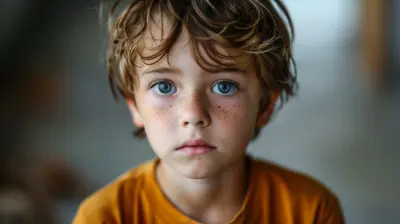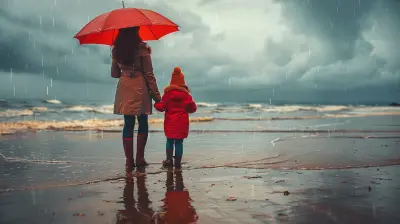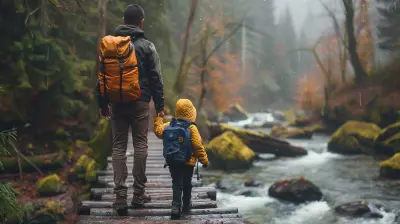Talking to Your Child About Natural Disasters Without Spreading Fear
8 October 2025
Let's face it — parenting doesn't come with a manual. You figure it out as you go, usually in pajama pants and with coffee in hand. But when it comes to scary stuff like natural disasters, knowing how to talk to your child without turning them into a pint-sized doomsday prepper? Yeah… that's tricky. We're about to tackle that together — the warm, honest, slightly funny way.
Whether your kid is asking about earthquakes, tornados, or if a volcano might erupt in your backyard (spoiler: probably not), this guide has your back — with real tips, heartfelt advice, and zero fear-mongering.
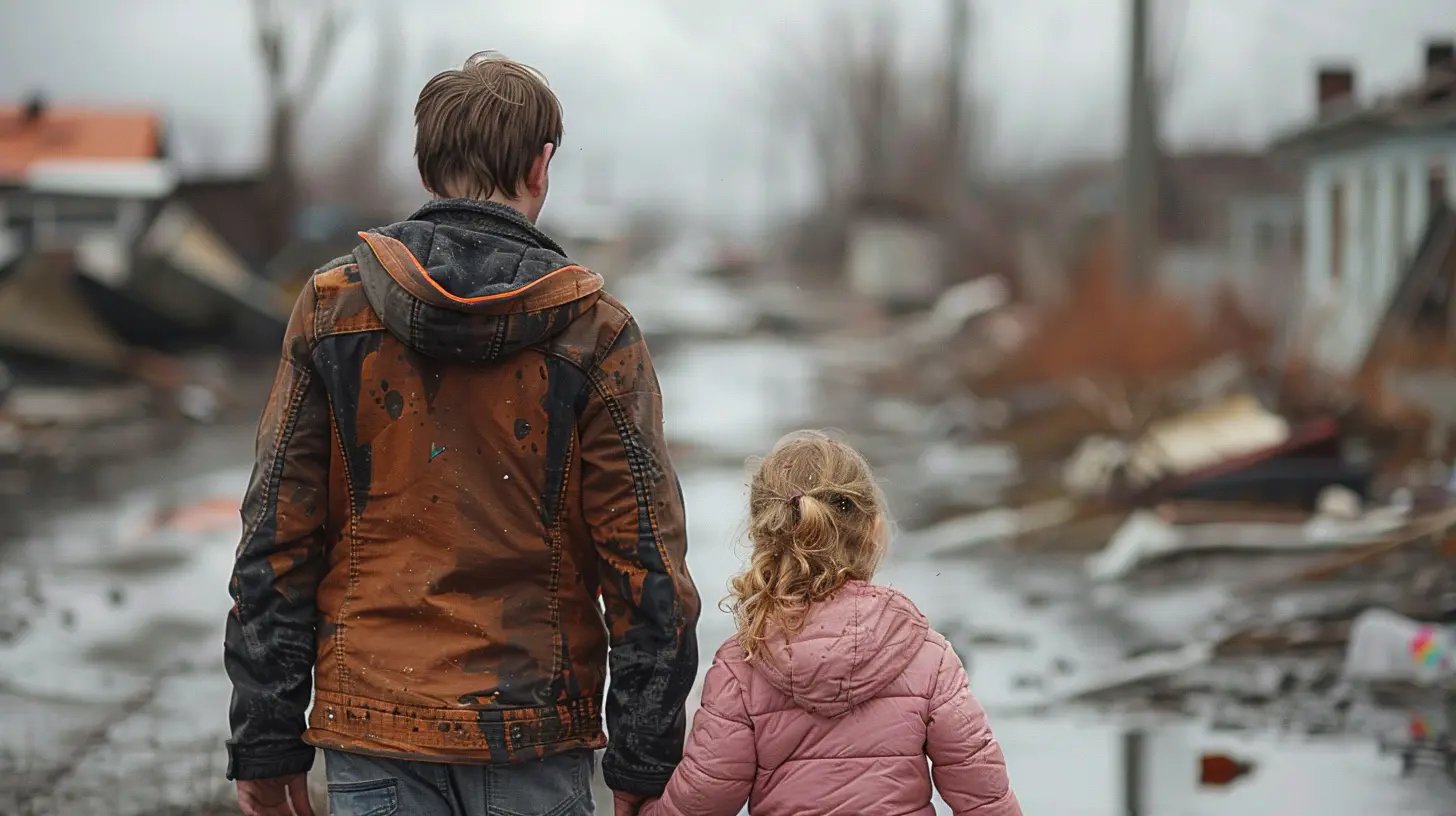
Why It’s Important to Talk About Natural Disasters (Even When You’d Rather Not)
Look, we all wish we could wrap our kids in bubble wrap, install a force field, and keep them blissfully unaware of anything stressful (also: stop time, so we could nap). But life happens. And part of prepping them for the real world — yes, even the messy, stormy, shaky bits — is talking about it.Kids are smarter than we give them credit for. They hear the sirens. They see the weather alerts. They ask questions. Ignoring their curiosity doesn’t protect them — it just leaves their little brains to fill in the gaps with wild guesses (and you know how creative a six-year-old's imagination is).
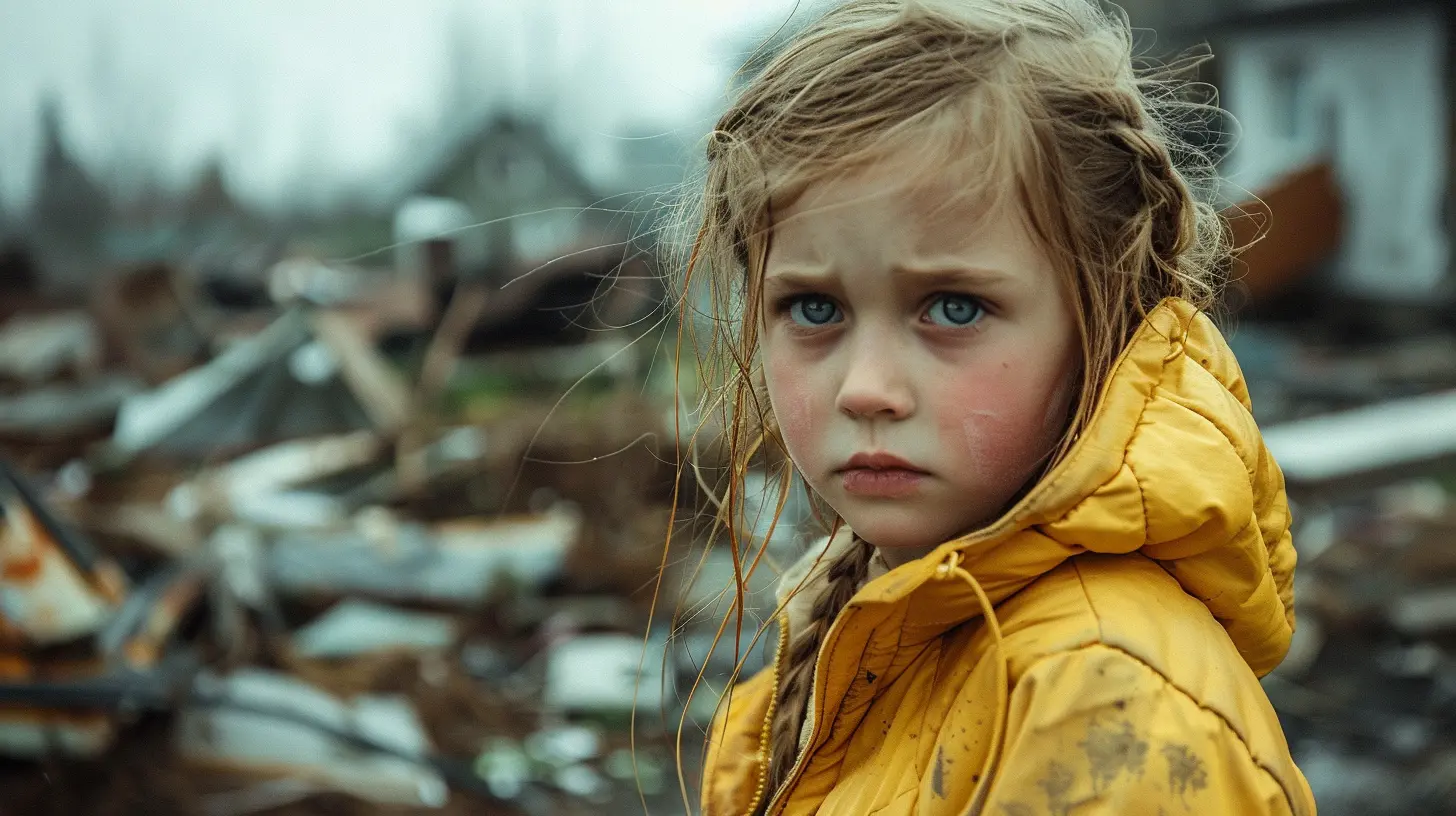
Rule #1: Don’t Wait Until the Storm Hits
No one wants to have “The Talk” (yes, this kind too) when the wind’s howling and the power’s flickering. That’s like trying to teach someone to swim during a tidal wave. Not ideal.Instead, find a calm moment — maybe while you're baking cookies or chilling on the couch — and bring it up gently. Take your cues from your child’s age and temperament. Think of it like sneaking vegetables into spaghetti sauce. You’re slipping in something healthy inside a comforting environment.
> “Hey bud, have you ever wondered what we’d do if there was a big storm or something weird like an earthquake?”
Boom. Door opened.
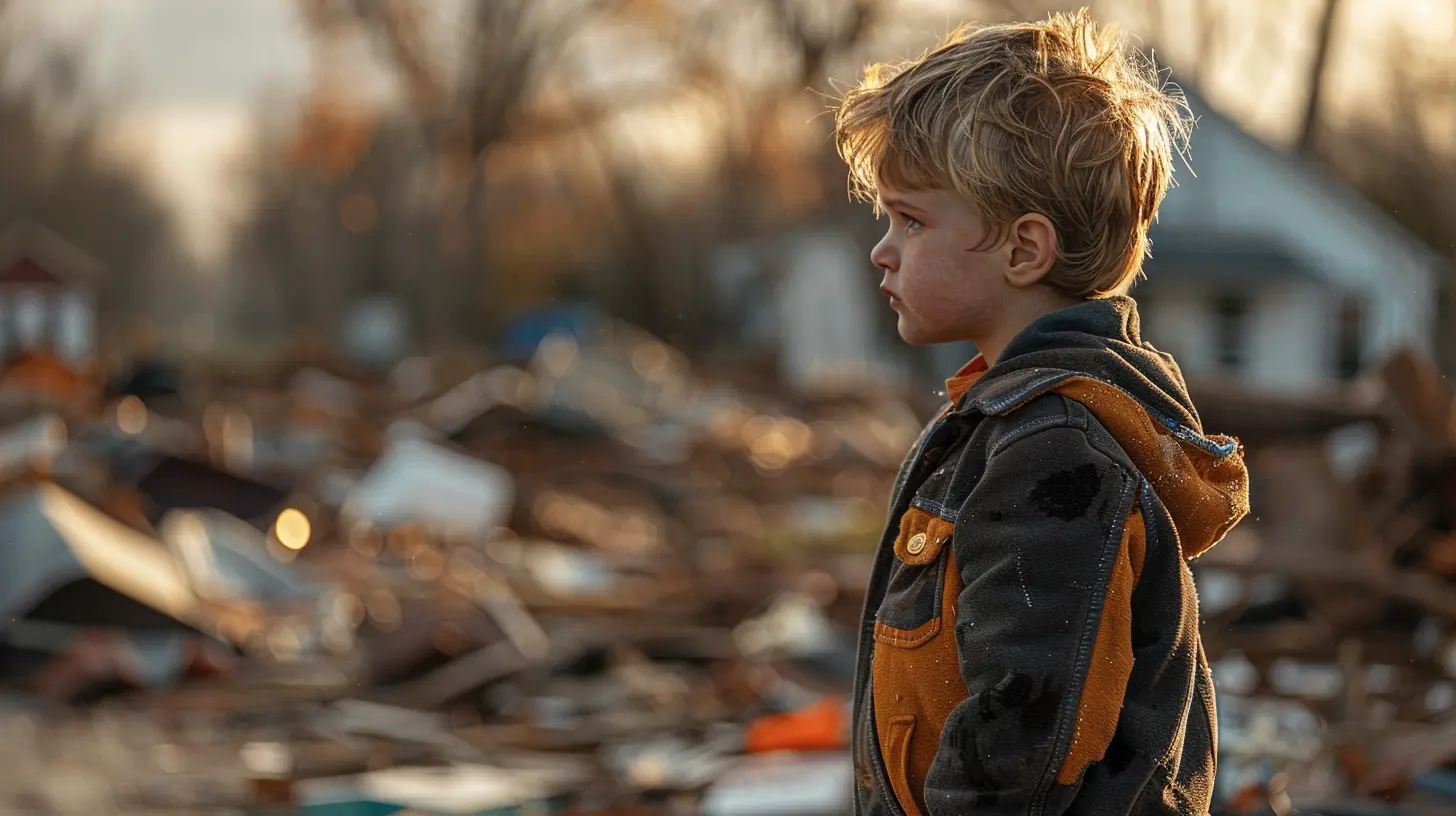
Keep It Real... But Soft Around the Edges
Honesty is important. Kids can smell fake reassurance like dogs sense fear. So yes, tell them natural disasters happen — but focus on the fact that you're prepared, that there are grown-ups who train their entire lives to keep people safe, and that plans are in place.Instead of saying:
> “There could be a massive earthquake that flattens the city!”
Try:
> “Sometimes the ground shakes in an earthquake, but our house is built to stand strong, and we’ve got a plan just in case.”
See the difference? One fuels anxiety. The other builds confidence.
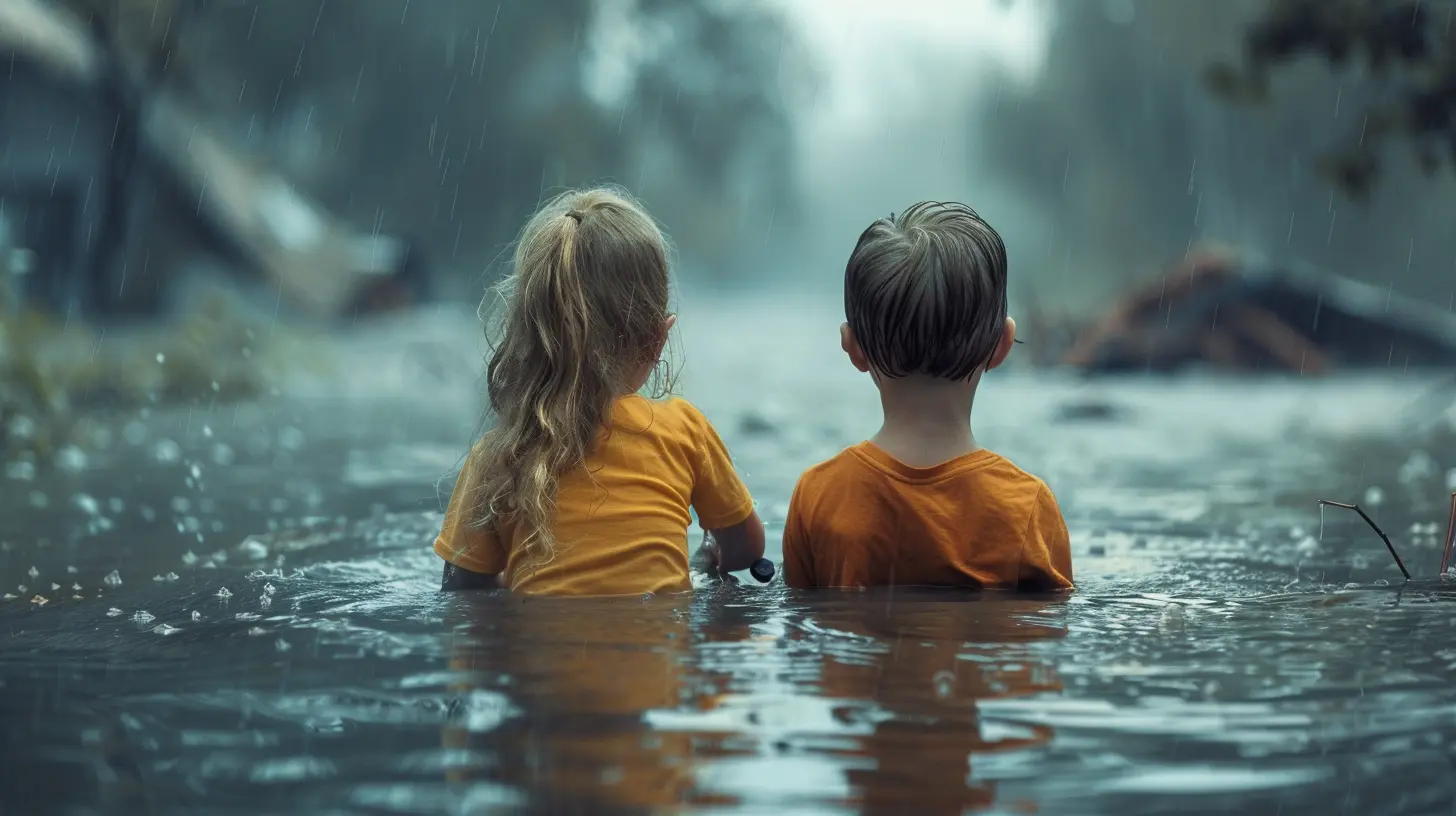
Avoid Doom-And-Gloom Language (No Apocalypse Talk, Please)
This is not the time to channel your inner action movie trailer voice. Words matter. Instead of “disaster,” try using “storm” or “emergency.” Instead of “danger,” try “something unusual we want to be ready for.”Think of it like editing reality — without cutting out the truth. You’re the director here, and the goal is to inform, not terrify.
Use Analogies They Understand
Children understand the world through comparison and imagination. So, use their language.- Earthquakes? “It’s like when you shake a snow globe. It wobbles, but then things settle down.”
- Hurricanes? “Imagine a big, spinning washing machine in the sky — that’s why we stay inside and let it do its thing until it’s done.”
- Floods? “Like a bathtub overflowing. We just have to make sure we don’t stay in the splashing part.”
These explanations make the concepts graspable without igniting their panic mode.
Let Them Ask Questions (Even the Weird Ones)
Kids ask questions that make your brain short-circuit. Get ready for gems like:- “Can tornadoes eat our house?”
- “Will a volcano explode in our backyard?”
- “Is thunder God bowling?”
(Okay, that last one is kinda sweet.)
Your job isn’t to have all the answers. It’s to validate their curiosity and guide them toward truth. If you don’t know something? That’s okay! Say, “That’s a great question, let’s find out together.” Voila — you just became Google, but cuddlier.
Make a Family Emergency Plan Together
This is where things shift from talk to action. Kids feel empowered when they’re part of solutions.Create a simple emergency plan:
- Where will everyone meet if separated?
- What’s in your disaster kit?
- Who’s your emergency contact if phones go down?
Let them help pack the go-bag! Toss in a flashlight, snacks, maybe their favorite stuffed animal or comic book. Suddenly, it’s not scary — it’s an adventure prep.
> Think of it like packing for a sleepover… just in case Mother Nature gets cranky.
Practice Without Panic
Just like schools do fire drills, you can run little “what if” scenarios at home.- “Okay gang, pretend our power goes out. What do we do?”
- “Let’s walk through what we’d do if it started raining really hard.”
Make it playful, like a game. Who grabs the flashlight? Who gets the snacks? Who’s in charge of the family doggo? Bonus points for silly team names and badges (Captain Snack, Reporting for Duty!).
The goal? You’re planting calm confidence that blooms into action when it really counts.
Limit the Media Mayhem
News isn’t really kid-friendly. With dramatic music and urgent tones, even you start sweating — imagine how it feels for your child.Turn off the 24/7 disaster loop. If your child is curious, find a child-appropriate explanation (thank you, internet!) or watch together and pause often to debrief. The moment the news feels more like a horror movie than information, it’s time to click “off.”
Comfort Is in the Routine
When life gets wobbly (literally), kids find comfort in routine.Stick to bedtime stories. Make pancakes on Saturday. Keep snack time sacred. Your child’s world is built on predictability. Reinforcing familiar rhythms is like giving them a warm blanket while the wind howls outside.
Even if your power’s out and you’re playing Uno by candlelight, laugh together. Joke about your "survival breakfast” of granola bars and juice boxes. Your calm turns a crisis into a memory that doesn’t sting.
Encourage Empathy and Compassion
Believe it or not, talking about natural disasters can be a springboard for kindness.Ask your child: “Some kids don’t have homes right now because of the flood. Is there something we could do to help?”
Maybe they draw pictures for kids in shelters. Maybe you donate clothes together. This turns fear into love. Teaches them: Yes, bad things happen, but good people show up.
> That’s powerful stuff.
Check In Afterward (Even if It Seems Like They’re Fine)
Kids are masters of pretending they’re okay until, oops, they’re full-on melting down because their cereal is touching the milk wrong. That’s often fear showing up sideways.So check in:
- “Did anything we talked about feel confusing or scary?”
- “What helped you feel safe when we practiced our plan?”
- “Anything you want to ask me?”
And then… listen. Just listen.
Final Thoughts: You’ve Got This, Superparent
You're not going to get this perfect. No one does. You’ll trip over your words. You might overshare. You might under-explain. But if your kid walks away knowing they’re safe, loved, and that you’ll always tell them the truth in a way they can handle — you’ve done your job.Be the calm in their storm. Be the steady voice amid the noise. And hey, maybe stock up on snacks and batteries while you’re at it (because that flashlight always dies when you need it most).
Frequently Asked Questions
What age is appropriate to start talking about natural disasters?
As soon as your child is asking questions or showing awareness — even around age 3-4. Keep it super simple and age-appropriate.What if my child gets MORE anxious after we talk?
Normalize their feelings. Let them know it’s okay to be nervous — and that you're there. Keep reinforcing your emergency plan and routines. If anxiety persists, consider talking to a child therapist.What if I feel anxious talking about these things?
Totally normal! Deep breath. Practice your own calm responses ahead of time. Remember, you're not alone — talk to other parents, therapists, or even disaster-preparedness organizations for support.all images in this post were generated using AI tools
Category:
Dealing With FearsAuthor:

Steven McLain
Discussion
rate this article
1 comments
Carmen Peterson
This article offers a thoughtful approach to discussing natural disasters with children. It’s crucial to balance honesty with reassurance. Encouraging open dialogue can empower kids to express their feelings while fostering resilience. I’m eager to learn more about gentle communication strategies!
October 9, 2025 at 3:57 AM

Steven McLain
Thank you for your thoughtful comment! I'm glad you found the article helpful. I’ll be sure to include more gentle communication strategies in future pieces.
